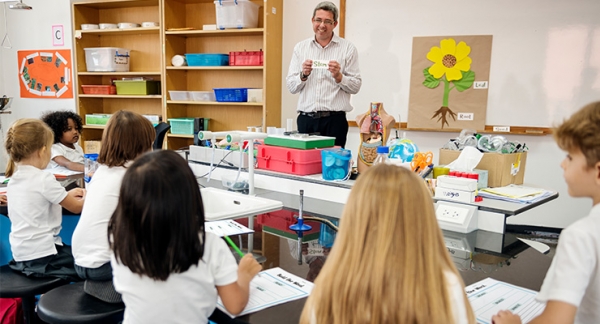Cost-of-living crisis. Will schools cut back on teachers?

As the cost-of-living crisis continues to deepen, teachers are seeing first-hand the devastating effects it has been having on pupils.
A growing number of pupils are arriving at school hungry, cold, tired and wearing dirty and damaged clothes or inappropriate footwear – meaning many are struggling to concentrate in class.
Sutton Trust, an education charity, surveyed 6,200 school teachers to look at how the wider financial pressures of the cost-of-living crisis is impacting children in the classroom. The results were shocking and disturbing, with those in the most deprived schools being hit the hardest. The report revealed 52% of senior leaders experienced a rise in the number of pupils ineligible for free school meals who were unable to afford lunch. In the most deprived schools that figure rose to 59%, compared to 44% in the least deprived areas. This indicates that pupils falling just outside of free school meals eligibility are increasingly going hungry.
As a result, many teachers are using their own money to buy clothes, food and supplies for their pupils as families struggle with soaring inflation, rising food costs and energy bills.
The survey also reported other issues:
- 74% of teachers saw an increase in pupils unable to concentrate or being tired in class, with almost seven in ten (67%) teachers who have students with behaviour issues.
- Over half (54%) have seen an increase in those coming to school without adequate winter clothing like a coat.
- 38% of teachers said growing numbers of children are coming to school hungry, with 17% saying there was an increase in families asking to be referred to foodbanks.
- There was a clear difference between those schools in the most deprived areas than those in the most affluent. Those coming into school hungry ranged from 56% in the most deprived areas to 22% in the least. Alongside this, requests for foodbank referrals have also increased 27% in deprived areas vs 8% in affluent areas and those without appropriate winter clothing increased 65% in deprived areas vs 40% in affluent areas.
- 38% of teachers reported a third of their pupils’ ability to succeed had been hindered due to financial pressures.
- Over two thirds of teachers believe the attainment gap will widen as a result of the crisis, whilst 18% of teachers believe the increase will be substantial. Only 9% of teachers believe the crisis won’t have any impact on the attainment gap.
What does this mean for teachers and schools?
The cost-of-living crisis is already having a knock-on effect with teachers and schools.
Many teachers are already struggling and one in ten have taken second jobs in order to keep eating and paying for essentials during the crisis. With almost 60% of teachers admitting to providing food and other supplies to children, this is only going to get worse and those currently not yet struggling may end up doing so.
For years schools have been underfunded and despite the uplift awarded in last month’s budget, this still is not enough to meet the challenge of faster rises in costs. Schools are now facing an even larger squeeze on their resources, with some schools resorting to drastic measures such as unscrewing light bulbs to reduce bills. A handful of schools have even considered reducing the school week but thankfully for now these are just rumours and not something that has been implemented. Some have had no choice but to reduce extra-curricular activities and slim down subjects such as drama, modern foreign languages and music.
Experienced teachers have decided to leave the profession or retire early, with London schools being hit the hardest by this increasing trend. The cost-of-living has risen significantly in the capital and many schools have lost teachers in search of better pay or a cheaper commute. Some have begun offering private tuition as a way of earning extra money, but with teachers routinely working on average 45 hours per week, these added responsibilities will only add more stress and anxiety.
Helen Osgood from the education branch of the Community Union told The Independent “Teachers across the country are crying out, telling us just how much they’re struggling and how the lack of funding is impacting their ability to do their jobs.” Education leaders warned the situation would not improve unless teachers received a greater pay rise to match soaring inflation.
The Chartered College of Teaching warned the cost-of-living crisis risked “further exacerbating” a wellbeing crisis within the profession – and this could have a knock-on effect on pupils.
“Teacher wellbeing is crucial for both student wellbeing and attainment,” the professional body for teachers said, adding that the research shows high-quality teaching is the “single most important in-school factor for student outcomes”.
“There is a real risk of teaching professionals being driven out of the sector and in a context of already poor recruitment and retention, this raises real concerns.”
The future for teachers
As for teachers being next on the list of cuts, there’s no official word from governing bodies or sources and judging by how much teachers are doing to help families and pupils get through the crisis, we can’t realistically see this happening. If anything, schools need good teachers to help deliver the education their pupils need and keep schools operating.
Has the cost-of-living affected you? Are you worried about the future? Talk to us today and we can help you find work that helps you get through the cost-of-living crisis. Demand for staff in schools has increased rapidly, which means there a lot of new opportunities. We work with some of the biggest academies and popular schools across London and the surrounding Home Counties and we are the first choice on a growing number of preferred supplier's lists. Give TLTP Education a call on 020 8709 6540 to have a chat or register your details online and we will be in touch.






